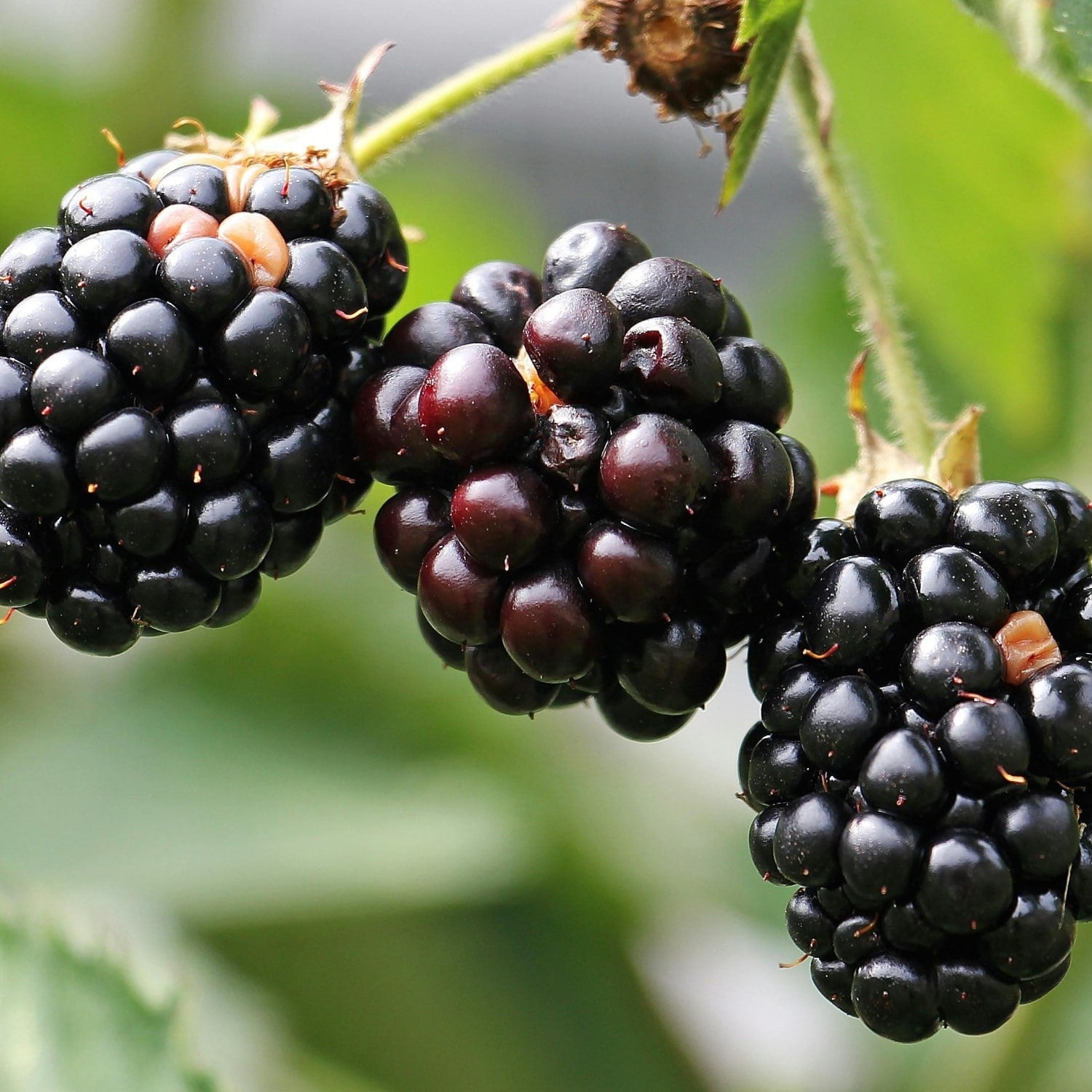Metabolism is a crucial aspect of our overall health and well-being, as it refers to the rate at which our bodies convert food into energy. Many individuals are constantly seeking ways to boost their metabolism in order to aid in weight loss and improve overall health.
One common suggestion is to increase the consumption of fruits and vegetables in one's diet. But does eating fruits and vegetables really have a significant impact on metabolism?
Eating fruits and vegetables can contribute to a healthy and balanced diet, but the direct impact on metabolism might be more nuanced than a simple increase.
Metabolism refers to the processes in your body that convert food into energy. While fruits and vegetables are essential for overall health, their effect on metabolism is influenced by various factors.
Why Does Eating Fruits and Vegetables Make You Lose Weight?
Eating a diet rich in fruits and vegetables can aid weight loss for several reasons. Firstly, fruits and vegetables are generally low in calories but high in fiber, making them filling and satisfying, which can help reduce overall caloric intake. Additionally, they are packed with essential vitamins, minerals, and antioxidants that support metabolic health and overall well-being.
To further enhance weight loss, incorporating a variety of fruits and vegetables in your diet can provide a wide range of nutrients that support optimal metabolic function and contribute to a healthy body composition.
Fruits and vegetables also tend to be high in water content, which adds volume to your meals without adding extra calories. This can help with portion control and prevent overeating. Moreover, these foods are rich in phytochemicals that may boost your metabolism and promote fat burning.
Athletes often prioritize the consumption of nutrient-rich fruit and vegetables for athletic performance, recognizing their crucial role in providing essential vitamins and minerals.
Eating fruits and vegetables can contribute to weight loss for several reasons:
- Low Calorie Density: Fruits and vegetables are generally low in calories but high in volume due to their water and fiber content. This means you can consume larger portions of these foods while keeping your overall calorie intake in check. Feeling full and satisfied on fewer calories can contribute to weight loss.
- High Fiber Content: Fiber adds bulk to your diet and helps you feel full for a longer time. It also slows down the digestion and absorption of nutrients, preventing rapid spikes and crashes in blood sugar levels. This steady blood sugar control can reduce cravings and overeating.
- Nutrient Density: Fruits and vegetables are rich in essential vitamins, minerals, and antioxidants. While being low in calories, they provide important nutrients that support overall health. When your body receives the necessary nutrients, it may reduce cravings for less nutritious, calorie-dense foods.
- Hydration: Many fruits and vegetables have high water content, contributing to hydration. Sometimes, the body can mistake thirst for hunger. By choosing hydrating foods, you may reduce the likelihood of overeating.
- Natural Sugars and Sweetness: Fruits contain natural sugars along with fiber, which slows down the absorption of sugars. This can help prevent rapid spikes in blood sugar levels, reducing the likelihood of insulin resistance and fat storage. Additionally, the natural sweetness of fruits can satisfy sweet cravings in a healthier way.
- Meal Substitution: Choosing fruits and vegetables as snacks or incorporating them into meals can be a healthy way to reduce overall calorie intake. For example, replacing high-calorie, processed snacks with fresh fruits or vegetables can lead to weight loss.
- Improved Digestive Health: The fiber in fruits and vegetables promotes a healthy digestive system. A well-functioning digestive system can enhance nutrient absorption and contribute to overall well-being.
It's important to note that while fruits and vegetables can be beneficial for weight loss, a balanced diet that includes a variety of food groups is crucial for overall health.
Additionally, factors such as portion control, physical activity, and overall lifestyle choices play significant roles in weight management. It's always advisable to consult with a healthcare professional or a registered dietitian for personalized advice based on individual needs and health conditions.

Can Enhancing Metabolism Speed Up Weight Loss?
Yes, enhancing metabolism can play a role in weight loss. The speed of your metabolism, often referred to as metabolic rate, can influence how efficiently your body burns calories.
Increasing metabolism can indeed aid in weight loss as a higher metabolic rate means your body burns more calories, even at rest. By consuming metabolism-boosting foods like fruits and vegetables, which are rich in fiber and essential nutrients, you can support your body's natural fat-burning processes and potentially accelerate weight loss.
Exercise and physical activity also play a crucial role in enhancing metabolism. Regular exercise, especially resistance training, helps build lean muscle mass, which can further increase your basal metabolic rate. Combining a nutritious diet with regular physical activity is key to speeding up weight loss and achieving a healthy body weight.
How Much Fruit and Vegetables Should You Eat Per Day?
Furthermore, certain foods like green tea and chili peppers contain compounds like capsaicin and antioxidants that have been shown to slightly increase metabolism and promote fat oxidation, contributing to a more effective weight loss journey.
Does Fruits and Vegetables Speed Up Metabolism?
Fruits and vegetables play a significant role in boosting metabolism due to their nutrient-dense nature and low-calorie content. These foods are rich in vitamins, minerals, antioxidants, and fiber, all of which contribute to a healthy metabolism and efficient energy expenditure. The fiber in fruits and vegetables requires more energy to digest, leading to a higher thermic effect of food and increased calorie burning.
- Nutrient Content: Fruits and vegetables are rich in vitamins, minerals, and antioxidants. These nutrients play crucial roles in supporting metabolic processes, such as energy production and cellular function.
- Fiber Content: Many fruits and vegetables are high in fiber, which can help with digestion and regulate blood sugar levels. Fiber also provides a feeling of fullness, potentially aiding in weight management.
- Thermic Effect of Food (TEF): TEF refers to the energy expended during the digestion and absorption of food. While protein-rich foods have a higher TEF compared to fats and carbohydrates, all foods require energy for digestion. Fruits and vegetables, being part of a varied diet, contribute to the overall TEF.
- Hydration: Fruits and vegetables have high water content, contributing to hydration. Adequate hydration is important for various physiological processes, including metabolism.
- Low-Calorie Density: Many fruits and vegetables are low in calories but high in volume, making them a good choice for those aiming to manage their weight. Eating a diet rich in these foods may indirectly support weight management, which can impact metabolism.
However, it's crucial to note that individual metabolism is influenced by genetics, age, gender, muscle mass, and physical activity levels. No single food or food group can drastically boost metabolism on its own.
Instead, it's the overall quality and composition of your diet, along with other lifestyle factors, that contribute to metabolic health.
How Do Fruits and Vegetables Enhance Metabolic Health?
Fruits and vegetables are essential for maintaining metabolic health due to their nutrient profile and bioactive compounds. They are rich in antioxidants that help reduce inflammation, oxidative stress, and cellular damage, which are all linked to metabolic disorders and obesity. Antioxidants also support cellular function and help maintain a healthy metabolism.
Fruits and vegetables contribute to metabolic health through various mechanisms, providing essential nutrients and promoting overall well-being.
How Does Eating More Fruit and Vegetables Benefit Your Health?
The fiber found in fruits and vegetables plays a crucial role in regulating blood sugar levels and insulin sensitivity, key factors in metabolic health. Additionally, certain fruits and vegetables like green tea and chili peppers contain compounds such as capsaicin and catechins that may help boost metabolism and promote fat oxidation, further supporting metabolic health.
Here are several ways in which they enhance metabolic health:
- Rich in Micronutrients: Fruits and vegetables are packed with essential vitamins and minerals that play crucial roles in metabolic processes. These nutrients are involved in energy production, enzyme activation, and maintaining the health of various organs and systems in the body.
- Antioxidant Properties: Many fruits and vegetables are rich in antioxidants, such as vitamins C and E, and phytochemicals. Antioxidants help combat oxidative stress and inflammation, which are implicated in metabolic disorders and chronic diseases.
- Fiber Content: The fiber in fruits and vegetables aids in digestion and helps regulate blood sugar levels. Soluble fiber, in particular, can slow down the absorption of glucose, contributing to better blood sugar control and insulin sensitivity.
- Low Energy Density: Fruits and vegetables are generally low in calories but high in volume. Consuming foods with low energy density can help manage body weight, reducing the risk of obesity and related metabolic issues.
- Natural Sugars with Fiber: The natural sugars found in fruits are accompanied by fiber. This combination slows down the absorption of sugars, preventing rapid spikes in blood glucose levels. Stable blood sugar levels are important for metabolic health and can reduce the risk of insulin resistance.
- Hydration: Many fruits and vegetables have high water content, contributing to overall hydration. Proper hydration is essential for metabolic processes, including nutrient transport, temperature regulation, and waste elimination.
- Potential Thermogenic Effects: Some fruits and vegetables may have a thermogenic effect, meaning they require more energy to be metabolized than the energy they provide. While this effect is generally modest compared to certain high-protein foods, it still contributes to the overall energy expenditure associated with digestion.
- Weight Management: Fruits and vegetables can be valuable components of a weight management strategy. Their high fiber content can promote satiety, reducing overall calorie intake and supporting weight loss or maintenance.
- Gut Microbiota Health: The fiber and prebiotics present in fruits and vegetables support the growth of beneficial gut bacteria. A healthy gut microbiota is associated with improved metabolic health and a reduced risk of obesity and metabolic disorders.
- Anti-Inflammatory Effects: Chronic inflammation is linked to metabolic disorders. The anti-inflammatory properties of certain fruits and vegetables help mitigate inflammation, contributing to improved metabolic health.
It's important to emphasize the consumption of a diverse range of fruits and vegetables as part of a balanced diet. While they offer numerous health benefits, overall dietary patterns, regular physical activity, and other lifestyle factors also play crucial roles in maintaining and enhancing metabolic health.
What Are the Best Fruits to Boost Metabolism?
While no specific fruit has a magical ability to significantly boost metabolism on its own, incorporating a variety of fruits into your diet can contribute to a healthy and balanced metabolic function.
Here are some fruits that offer various benefits that might indirectly support metabolism:
- Berries (e.g., blueberries, strawberries, raspberries): Berries are rich in antioxidants, vitamins, and fiber. The fiber content can aid in digestion and help regulate blood sugar levels, contributing to overall metabolic health.
- Grapefruit: Some studies suggest that grapefruit may have a modest impact on weight loss and metabolic health. It is thought to contain compounds that may improve insulin sensitivity and reduce calorie intake.
- Apples: Apples are high in fiber, particularly soluble fiber called pectin. This type of fiber can help with satiety and contribute to stable blood sugar levels.
- Watermelon: Watermelon has a high water content, contributing to hydration, and is a good source of vitamins and antioxidants. Its natural sweetness can also be a satisfying and low-calorie snack.
- Avocado: While technically a fruit, avocados are unique in that they are high in healthy monounsaturated fats. These fats can contribute to satiety and provide a steady source of energy.
- Pineapple: Pineapple contains bromelain, an enzyme that may aid in digestion. Additionally, pineapple is a good source of vitamin C and manganese.
- Kiwi: Kiwi is rich in vitamins C and K, as well as fiber. Its relatively low calorie content makes it a nutrient-dense option.
- Cherries: Cherries contain antioxidants and may have anti-inflammatory effects. Some research suggests they could impact factors related to metabolic syndrome.
- Papaya: Papaya is rich in vitamins A and C, as well as enzymes that may aid in digestion. Its natural sweetness can provide a healthy alternative to processed sweets.
- Pomegranate: Pomegranates are loaded with antioxidants and have anti-inflammatory properties. They can be a nutritious addition to a balanced diet.
Remember, the key to a healthy metabolism is a well-rounded diet that includes a variety of nutrient-dense foods. No single fruit will dramatically boost metabolism, but incorporating a mix of fruits alongside a balanced diet, regular physical activity, and other healthy lifestyle habits can contribute to overall metabolic health.
Additionally, individual responses to specific foods can vary, so it's essential to pay attention to how your body reacts to different fruits and adjust your diet accordingly.

What Vegetables Speed Up Metabolism?
While no specific vegetable has the power to dramatically speed up metabolism on its own, incorporating a variety of vegetables into your diet can support overall metabolic health. Vegetables are rich in essential nutrients, fiber, and antioxidants, which contribute to various aspects of metabolism.
Here are some vegetables that offer potential benefits for metabolic health:
- Leafy Greens (e.g., spinach, kale, Swiss chard): Rich in vitamins, minerals, and antioxidants, leafy greens are low in calories and high in fiber. They can contribute to overall health and support digestion.
- Cruciferous Vegetables (e.g., broccoli, cauliflower, Brussels sprouts): These vegetables are not only high in fiber but also contain compounds that may support detoxification processes in the body. They are nutrient-dense and contribute to overall well-being.
- Bell Peppers: Bell peppers, especially red and green varieties, are rich in vitamins A and C. Vitamin C is essential for collagen synthesis and may help the body burn fat more efficiently during exercise.
- Tomatoes: Tomatoes are a good source of vitamins C and K, as well as antioxidants like lycopene. Lycopene has been associated with various health benefits, including potential metabolic effects.
- Sweet Potatoes: Rich in vitamins A and C, as well as fiber, sweet potatoes have a lower glycemic index compared to regular potatoes. This can contribute to more stable blood sugar levels.
- Cabbage: Cabbage is low in calories and a good source of fiber. It also contains compounds that may have anti-inflammatory and antioxidant properties.
- Carrots: Carrots are high in beta-carotene, a precursor to vitamin A. They are low in calories and provide a natural sweetness, making them a healthy snack.
- Cucumber: With high water content, cucumbers contribute to hydration and are low in calories. They are a refreshing addition to salads and snacks.
- Zucchini: Low in calories and carbohydrates, zucchini is a versatile vegetable that can be used in various dishes. It provides vitamins and minerals without contributing many calories.
- Asparagus: Asparagus is a good source of vitamins A, C, and K, as well as folate. It also contains antioxidants and is low in calories.
Why Do We Need to Eat More Fruits and Vegetables?
Remember that the overall quality and balance of your diet, coupled with regular physical activity and other lifestyle factors, play crucial roles in metabolic health.

